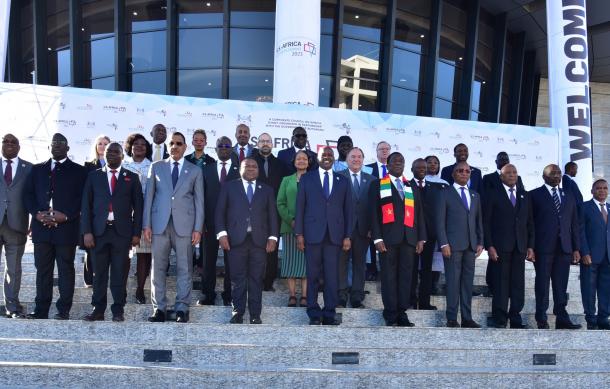
Over the years, Africa has positioned itself to move away from aid and grant dependence to being a business hub and a significant player in the global economy.
The US-Africa summit officially opened in Tlokweng Village, outside Gaborone, with more than 1300 delegates from the public and private sectors from both the US and African countries.
Despite being endowed with strategic natural resources, Africa accounts for only about 2% of the world's Gross Domestic Product (GDP), and this is what the US-Africa summit is seeking to address.
It is touted as a key pillar of Africa's engagement with the world's largest economy, the U.S., and creating a strong, balanced, transparent, and inclusive trading system that benefits all nations.
Therefore, participants are to explore available financing from the U.S. government, institutional investors in the U.S., and African banks.
It also comes against the backdrop of the Biden administration committing more than USD 50 billion in foreign assistance to invest in Africa over the next three years.
Human capital, infrastructure, digital connectivity, agribusiness, sustainable energy, health systems, and peace and security
Namibia's Vice President Nangolo Mbumba stated the country's case for attracting private sector-led investments to add value to crucial resources.
One such is the Green Hydrogen Development, where Namibia is not limiting partnerships to only one country or continent.
The summit is the largest private-sector gathering and has seen a number of African companies further review existing partnerships to be responsive to current needs.





